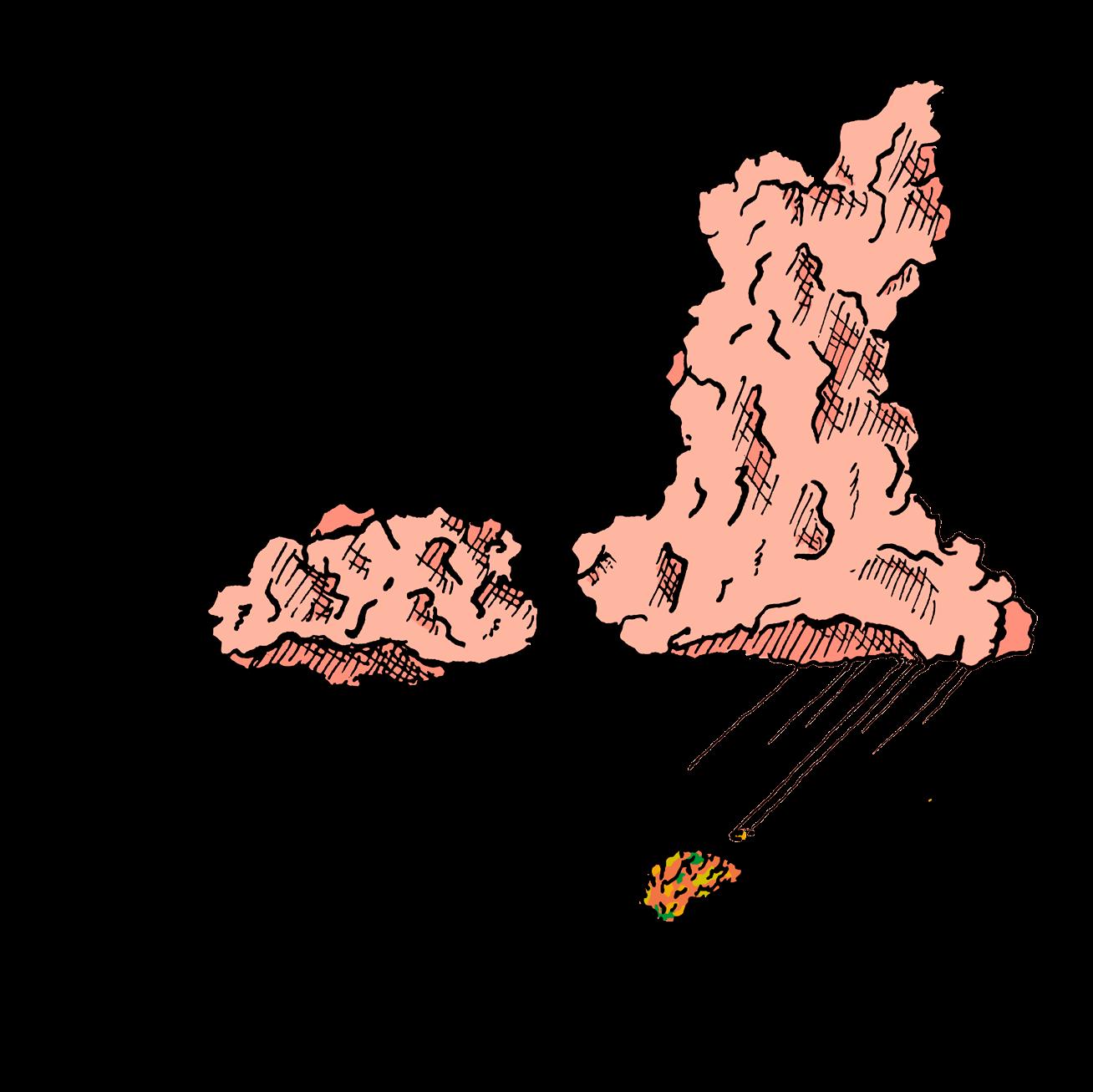
7 minute read
Don’t look up reviews of Don’t Look Up
Michalina Czerwońska
Don’t Look Up is a film that garnered enormous attention at the end of last year and as of now is Netflix’s second most viewed film of all time. This isn’t particularly surprising, considering the film’s star-studded cast, the well-established reputation of its director (Adam McKay), and an intense marketing campaign founded by the picture’s giant distributor. Yet, the reception of the film has not been entirely favourable. The critics’ reviews have been rather harsh. In fact, Don’t Look Up is the first Leonardo DiCaprio film in years to have received a ‘rotten’ rating on the popular site Rotten Tomatoes. Still, the general public’s response tends to be a lot more approving; for instance, the audience score at Rotten Tomatoes has racked up 78%, while that of the critics is only 56%. Moreover, there is a particular group of viewers who seem to strongly oppose the negative reviews, e.g. some climate scientists and activists. So, what is it about the film that the critics hate? And why do the audiences disagree?
Advertisement
If the primary target of the film’s popular critiques were its lack of taste and general clumsiness, I would not dare object. Even though Don’t Look Up shares its director, writer and even editor with the stylish and thrilling hit, The Big Short, it achieves nothing near the flair of its 2015 predecessor. Riddled with stock footage, strange pace, tacky editing techniques and stale wannabe memes, the picture made me wonder how this experienced and talented creator could allow for such shortcomings. There are some original and hilarious moments in the film (Jennifer Lawrence’s character’s constant confusion about the Air Force general who makes the main protagonists pay for free snacks was my personal favourite), but those are rather few and scattered throughout the picture in a way that does not really salvage its overall image. The problem is that the most criticised aspect of Don’t Look Up is not its disappointing style. What the critics are most displeased with has more to do with the bluntness of the film’s message. While the picture is clearly blunt, I believe it is not necessarily a reason for such harsh treatment.
In my mind, the way the critics approach the film is rather irrelevant and unproductive. As I have been looking through various negative reviews, the word that seemed to always reappear was “smug”, and I do understand why someone would describe it in such a manner. The political satire is unbelievably obvious and rather banal – it is even more true in the film’s portrayal of the media. Some moments appear to have been taken straight out of a high-school moralising talk for students, for instance in the scene with DiCaprio’s sentimental and cliché “how come we can no longer talk to one another?” speech. Yet, the critics do not reject the film solely for its simplicity and the overtly moralistic tone. It boils down to this: Don’t Look Up’s biggest issue is that the film is insulting to the viewers’ intelligence. In fact, the critics see it as full of “lofty superiority” (Charles Bramesco, The Guardian) or call its execution “condescending” (Louis Chilton, The Independent). This looks as if the critics were personally offended that the film is not as complex as they would like it to be. Viewing such a straightforward and unnuanced piece makes them feel patronised, and that is why they slam it. It is no longer about the film’s lack of merit, but rather about some imagined ego battle between the creator and the critic. Consequently, this perspective is irrelevant to most people.

Jan Bodzioch
The dispute around Don’t Look Up is an issue of disagreement about how and on what grounds we should judge films in general. David Vetter in his Forbes article titled “Why Sneering Critics Dislike Netflix’s ‘Don’t Look Up,’ But Climate Scientists Love It” aims to defend the film by questioning the critics’ authority. It seems that the article was an expression of a belief circulating among the public: the critics don’t like Don’t Look Up because they are snobs, and the film should be praised because its topic is important. This standpoint is in accordance with my previous idea; the critics have a characteristic (whether described as snobbish or educated is a matter of perspective) approach to films, and to most people it is unrelatable or insignificant. On the other hand, the idea Vetter was expressing has also been raised by others, for instance, abovementioned Louis Chilton in his Independent article. They argue that we should be able to call a bad film a bad film, even when its message is noble. In their view, films are either “good” or “bad”, and all we have to do is classify it and rate it accordingly. But perhaps there is another way of looking at it. Maybe the fact that a film is “bad”, technically, aesthetically, or in any other way, does not necessarily mean that we should completely discredit it. If we do so, we could be disregarding the picture’s potential to influence wide audiences. What I am trying to say is really simple – a film can be “good” and “bad” at the same time – it just depends on our categories of judgement.
Most people are not film critics. If casual audiences are to notice the style of a film at all, it is bound to be more an impression or intuition rather than a consciously formed thought to the extent: “Oh, I hate the way the lighting is too sharp in that sequence”. Consequently, all the previously mentioned formal problems of Don’t Look Up can easily escape the attention of lay audiences. On the other hand, with such a casual viewing culture, films with as straightforward a message as McKay’s latest piece have a substantial advantage – they are more likely to be understood and seen for what they really are.
At its core, Don’t Look Up is a metaphor for climate change. It focuses on portraying how the current global socio-political situation prevents us from acting on what is most probably the biggest challenge humanity has ever faced. The film explicitly shows some of the obstacles in the battle to mitigate global warming: extreme short-sightedness of our political systems, and the issues of public communication which cause disagreement on even the most basic facts. In short, the picture voices the urgency of the climate crisis and breaks down the social structures that impede our ability to counteract the issue. As I believe, there is merit in Don’t Look Up. It seems to be a clear example of a movie which can be both “bad”, and have a “good” impact on our reality. The question of how much a film can in fact influence people is a whole other story.
However bad Don’t Look Up may be, the least it does is try to capture the anticipatory anxiety of a planetary catastrophe, while feeling that too few care. Whether the film succeeds is a matter of dispute. I can only say that Don’t Look Up at times made me feel the helpless frustration and desperate anger of its characters. It might have been caused by the fact that an individual is often faced with such feelings in the face of the current political climate and the general global situation. These emotions are simply very relatable. The affinity I have for the issues the film is trying to address makes me almost forgive its clumsiness and inelegance. And while the cinema I tend to appreciate most has a lot more subtlety, nuance and beauty, I think there is space for films such as McKay’s latest picture. So, is Don’t Look Up a great film? Not really. But am I glad it exists? By all means.

Jan Bodzioch









